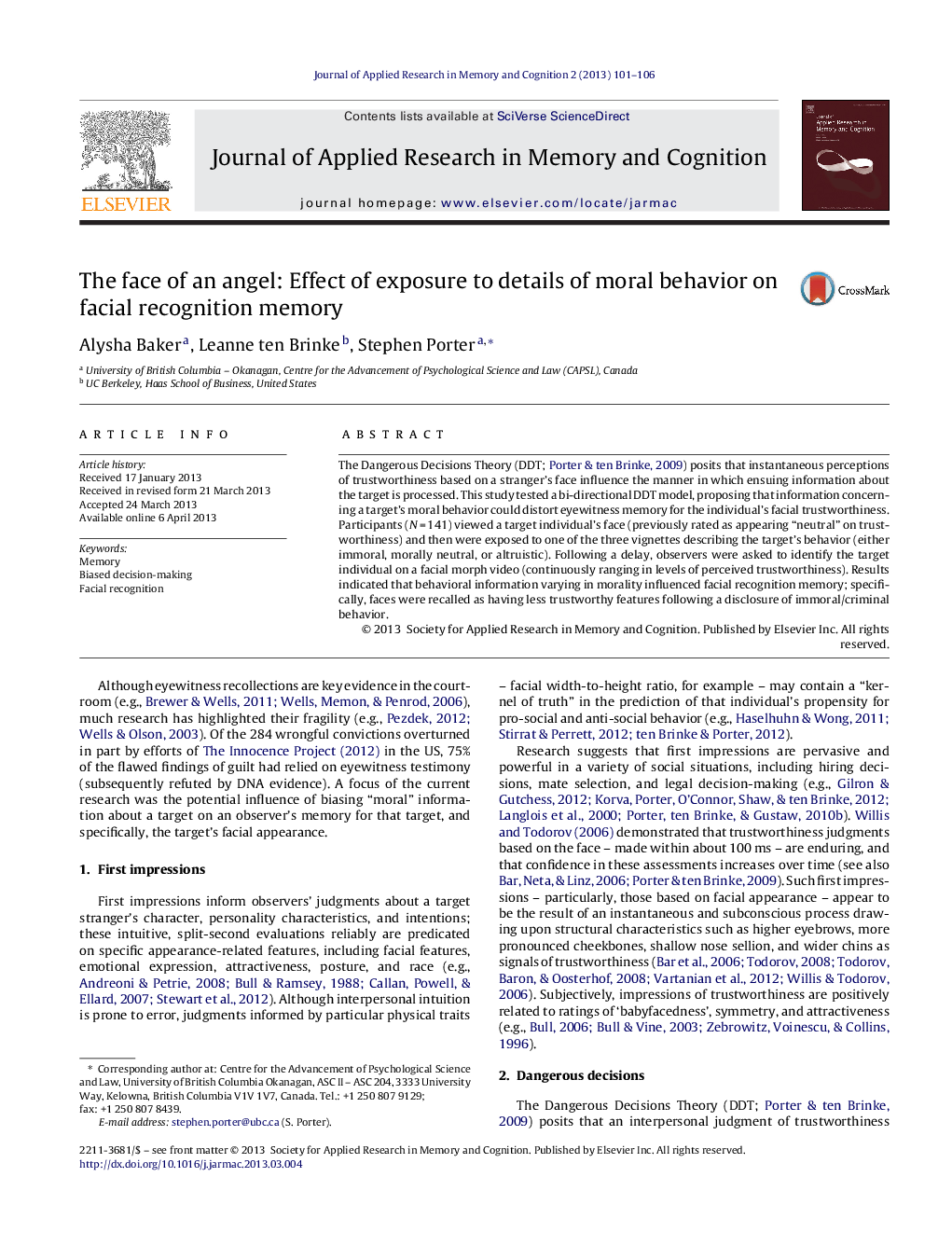| Article ID | Journal | Published Year | Pages | File Type |
|---|---|---|---|---|
| 881642 | Journal of Applied Research in Memory and Cognition | 2013 | 6 Pages |
•We tested a bi-directional model of the Dangerous Decisions Theory (DDT).•We examined whether information encountered post-interaction influences memory.•Moral information about the target influenced observers’ memory for the target.•Specifically, targets associated with immoral behavior were recalled as appearing less trustworthy.
The Dangerous Decisions Theory (DDT; Porter & ten Brinke, 2009) posits that instantaneous perceptions of trustworthiness based on a stranger's face influence the manner in which ensuing information about the target is processed. This study tested a bi-directional DDT model, proposing that information concerning a target's moral behavior could distort eyewitness memory for the individual's facial trustworthiness. Participants (N = 141) viewed a target individual's face (previously rated as appearing “neutral” on trustworthiness) and then were exposed to one of the three vignettes describing the target's behavior (either immoral, morally neutral, or altruistic). Following a delay, observers were asked to identify the target individual on a facial morph video (continuously ranging in levels of perceived trustworthiness). Results indicated that behavioral information varying in morality influenced facial recognition memory; specifically, faces were recalled as having less trustworthy features following a disclosure of immoral/criminal behavior.
